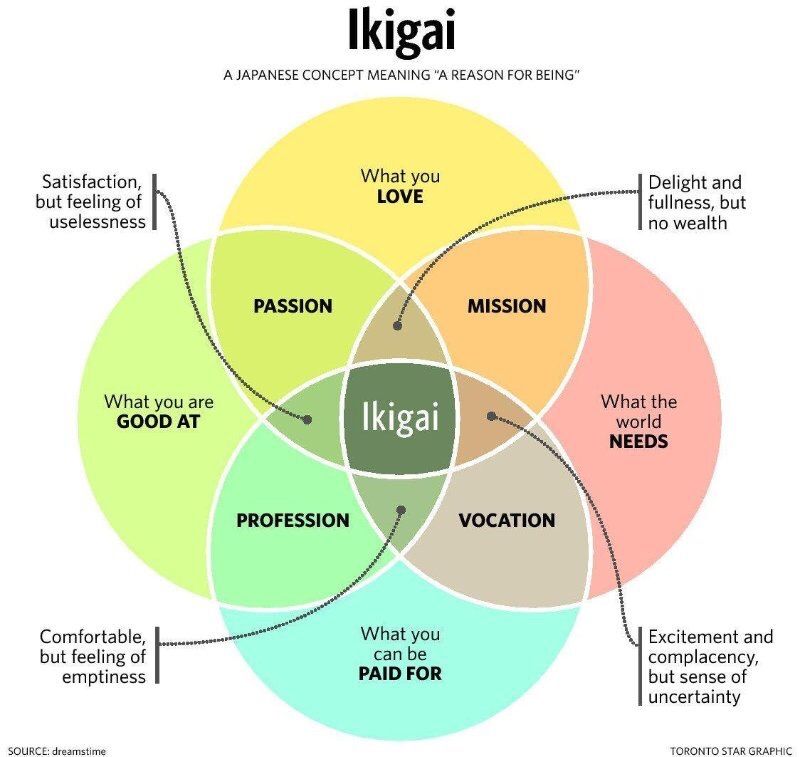On ikigai
The Japanese concept of ikigai (pronounced ee-kee-guy) has recently gained popularity in Western culture. Although there is no direct English translation, ikigai refers to something that gives a person a sense of purpose or a "reason for being." You may recognize it as a Venn diagram that looks something like this:

The concept of having a singular life purpose or reason for being can be daunting, and it's actually a misconception of the spirit of ikigai. Akihiro Hasegawa, a clinical psychologist and ikigai researcher, notes that in English, "life" can mean both lifetime and everyday life. However, in Japan, these concepts have distinct words: "jinsei" means lifetime, and "seikatsu" means everyday life. Hasegawa suggests that ikigai aligns better with the latter.
The search for ikigai should not be overwhelming or all-consuming. It's about enjoying the daily journey of life, rather than longing for an ultimate destination. According to Hector Garcia, the author of a popular book on ikigai, "You don't need huge ambition to be very happy. You just need a bunch of friends to drink green tea and talk with. Get rid of the mess, and at the core is your ikigai.”
Your ikigai doesn't have to be just one thing either. Your interests and passions evolve over time, so the makeup of your ikigai is bound to change as well. You may love doing some things, be good at others and get paid for them, and yet other things may serve a greater need. The goal is not necessarily to find the one thing that represents all four circles but to ensure that your life isn't overly focused on any one area and is filled with activities that, together, form your ikigai.
Since I began my sabbatical, questions about purpose and meaning have frequently come up, sometimes leading to anxiety. However, reminding myself of the essence of ikigai has been helpful. By shedding the things that no longer align with my values or interests and following my natural curiosities, I’m slowly working towards a life of more balance and pursuing my current iteration of ikigai - “to learn.”